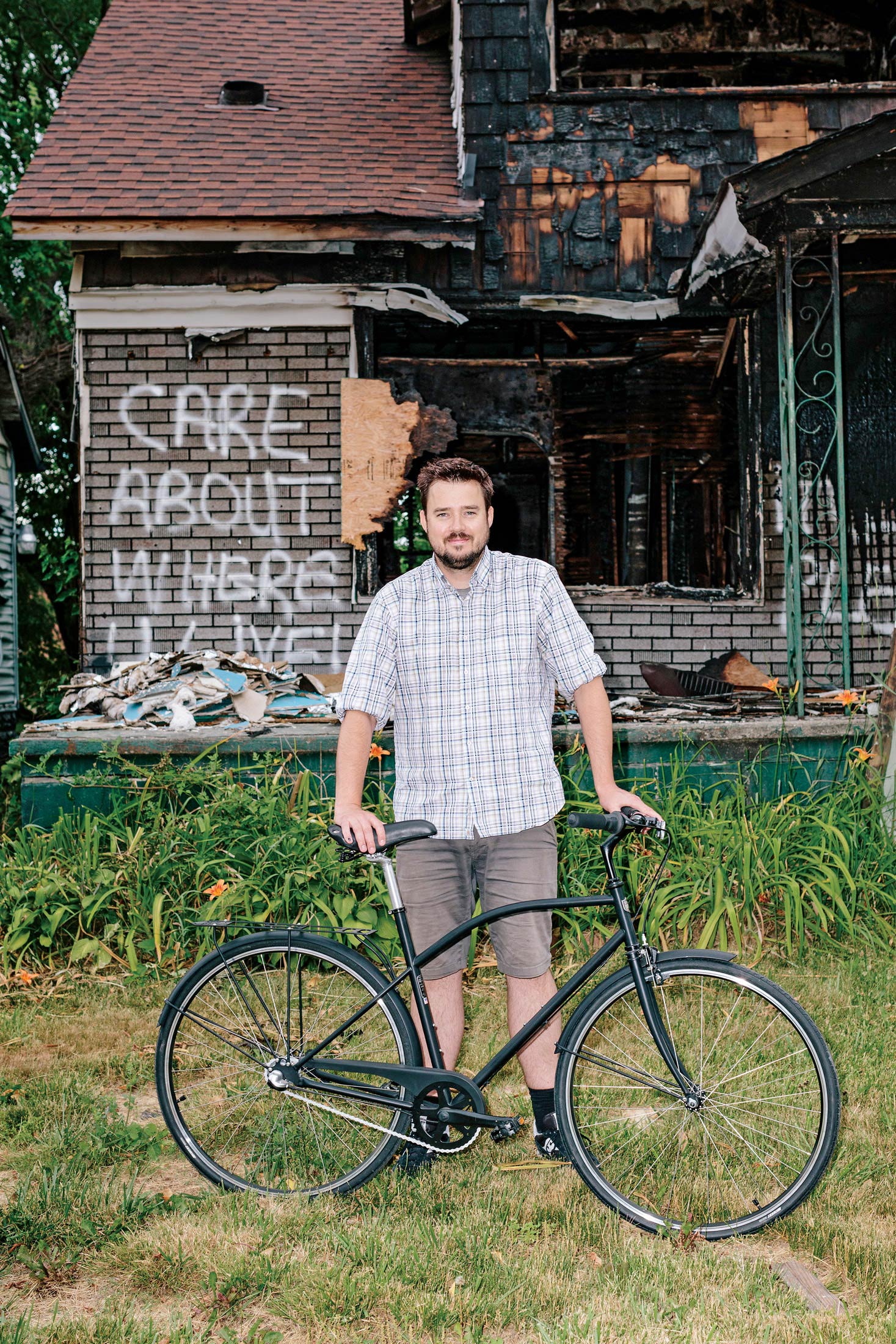The Detroit Bikes factory sits on the West Side of the city near scattered abandoned homes and a junkyard full of rusted car parts. Inside, workers are taking test rides through the 50,000-square-foot facility on a fleet of freshly assembled bicycles destined for New York’s Citi Bike bike-share program. On foot, founder Zak Pashak, 36, dodges the riders, navigating a path around the chaotic floor and holding forth on the virtues of American-made chromoly steel—which, in case you’re not a metallurgist, is lighter and stronger than standard steel and is what Pashak uses in his house line. He stops and points to the loading dock, where a tractor-trailer waits to haul the bikes more than 600 miles to Citi Bike headquarters in Brooklyn. “This was my dream when we got the factory—watching semis drive away at the end of the day,” Pashak says.
When his factory opened in 2013, bicycle manufacturing in the U.S. had all but disappeared. The long, downward spiral began in the 1980s, when industry-giant Schwinn shifted work to Asia, a cost-saving move that other manufacturers such as Huffy soon copied. In 2015 only 2.5 percent of the estimated 12.6 million bikes sold in the U.S. (not including those for children) were made here, according to the National Bicycle Dealers Association. “A lot of people thought it was really goofy when I first started this,” says the bearded Pashak, who describes Detroit as “a good spot for urban revitalization to take hold” and is prone to similarly grandiose talk about changing the world. If his technology weren’t 200 years old, he could pass for a startup founder.
It probably was really goofy, based purely on economics. But at a time when we want our kale organic and our beer microbrewed, manufacturing bicycles in the cradle of the U.S. transportation industry turns out to be just rational enough. Shinola, which also sells bikes, might have stolen Pashak’s thunder by becoming the face of Detroit’s rebound. Yet Detroit Bikes’ contract with Motivate, the company that runs bike-sharing programs in 12 metro areas, has helped put Pashak’s company on pace to churn out 10,000 bikes this year. It’s nice that in doing so he’ll employ 50 people in a city with 10 percent unemployment, about double the national rate. It’s perhaps more significant that without this Canadian transplant’s operation, options for how busy urbanites get from point A to point B might literally be fewer and farther between.
To read more of this story, visit http://www.bloomberg.com/features/2016-detroit-bikes/


